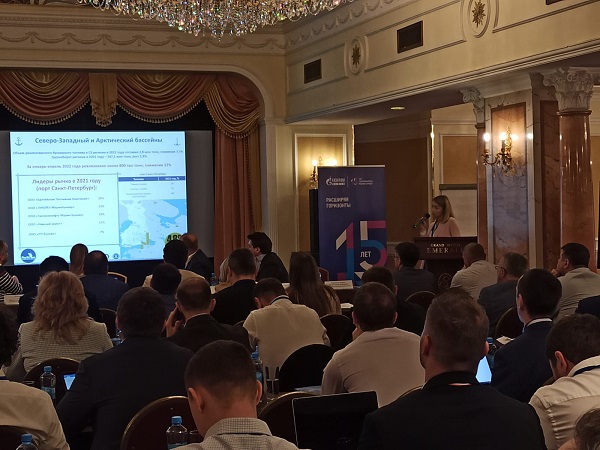PortNews presented the forecast today at the 15th edition of Current State and Development Prospects of the Russian Bunkering Services Market Conference

The disruption of global supply chains following the international sanctions imposed on Russia has led to a reduction in vessel traffic in Russian ports, which may lead to a decrease in Russian bunker market sales from 7.1 million in 2021 to 6 million tonnes in 2022.
Marina Borisenko, head of the media group’s analytical department, stated this during the forum "Current State and Prospects for the Development of the Russian Market of Bunkering Services".
Ship calls to Greater Port of St. Petersburg in January – May decreased by almost a third compared to the same period 2021, said Vitaly Kovalev, President of Russian Association of marine and river Bunker Suppliers (RosMorRechbunker). Southern ports and terminals in the Far East, according to PortNews, also showed a decline 2 to 4%. However, Marina Borisenko noted, correlation between number of calls and sales of bunker fuel reduced considerably: many ship operators continue to call under old pre-sanction contracts, but do not buy bunker fuel.
“Incomes of bunkering companies trading in foreign currency began to decline more rapidly due to the strengthening of RUB. The Russian bunker market in Jan-Mar 2022 sagged by a quarter compared to the same period a year earlier. We expect about 6 million tonnes by year-end, a decrease of 10%. In 2021 bunker suppliers sold 7.1 million tonnes in the Russian Federation,” said Marina Borisenko.

Following a surge in global crude oil prices, the cost of marine fuels has almost doubled, she added. However, sanctions risks, even despite the widening gap in the cost of bunkering in foreign and Russian ports, do not yet allow us to realize the advantage of domestic bunkering companies. At the same time, the forum participants agree that in the medium term, the market expects a surplus in supply and a discount.
Due to the rapidly changing geopolitical situation, experts and industry participants find it difficult to estimate the number of ship calls at the end of the year. According to PortNews forecast, the change in one direction or another is unlikely to exceed 10%.



